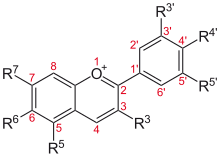Inertia is the tendency of a Thing to maintain its current state. As Buridan wrote in Quaestiones super caelo et mundo (14th cent.)
"When God created the celestial spheres, He gave them an impetus [i.e., momentum] and this impetus is not corrupted or diminished unless there is resistance."
Centuries later, Newton used this as one of his three axioms
In biology, inertia is called "the struggle for survival." The efforts of a living Thing to go on living is simply a more animated version of the "efforts' of a boulder to remain stubbornly in place.
However, a Thing
subject only to its own Inertia would remain... well, inert. Nevertheless, we see around us that some things are changing. A green apple changes to red; an acorn grows into an oak. A kitten crosses the room. Uranium decays to lead; sodium and chlorine combine into salt. A boulder tumbles down a hillside. Inertia would prevent all this from happening.
 |
| The potential redness of apples |
Therefore, anything that is changing is being changed by something else, or as Newton put it "by an outside force." A green apple is potentially red but is made actually red by sunlight in the 3,600 to 4,500 Å range (which causes the anthocyanin in the skin to absorb the near-ultraviolet, violet, blue and green regions of the spectrum, thus reflecting red). A boulder tumbles down the hillside because wind and rain have undermined its support. It didn't make a break for it on its own initiative.
Actualizers must already be actual. Since something that is merely potential can't do diddly-squat, a Thing that is potentially X cannot be made actually X, except by something which is already actually X, either in itself or in a higher sense. Paint cannot make a wall red unless the paint is already red itself. But the light that makes an apple ripen to red contains red only in a higher sense.
The boulder moves down the hillside because the ground supporting it has moved, and this happens because the wind that moved [eroded] the dirt was itself actually in motion. [The air in turn is moved by a difference in air pressure, which contains the motion in a higher sense.] In either case, nothing that is only potentially so can make something actually to happen.
An important distinction. Among actualizers of potentials, some are like toppling dominoes. The capacity of domino #2 to topple #3 does not depend on Domino #1 still existing. If an email sent by Adam to Betsy to Chuck, the power of Betsy to forward the email to Chuck does not depend on Adam hanging around. Such actualizers are "sequential."
Other actualizers must continue to act or the result ceases. For example, the sunlight must continue to act on the apple for it to redden. If the sunlight is blocked, the apple will cease to redden. A clarinet has the potential to make music but will only actually do so if a clarinetist actually plays on it. If she stops playing, the music-making will cease.





